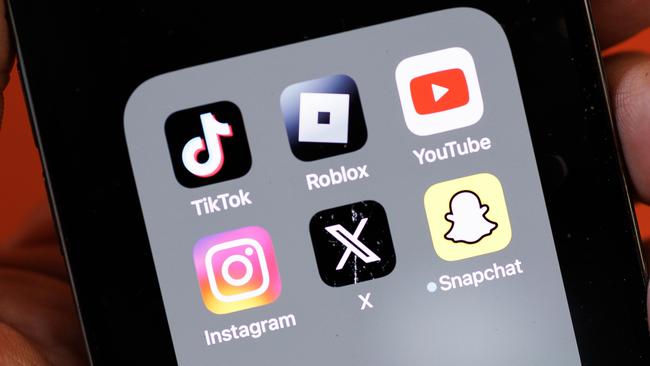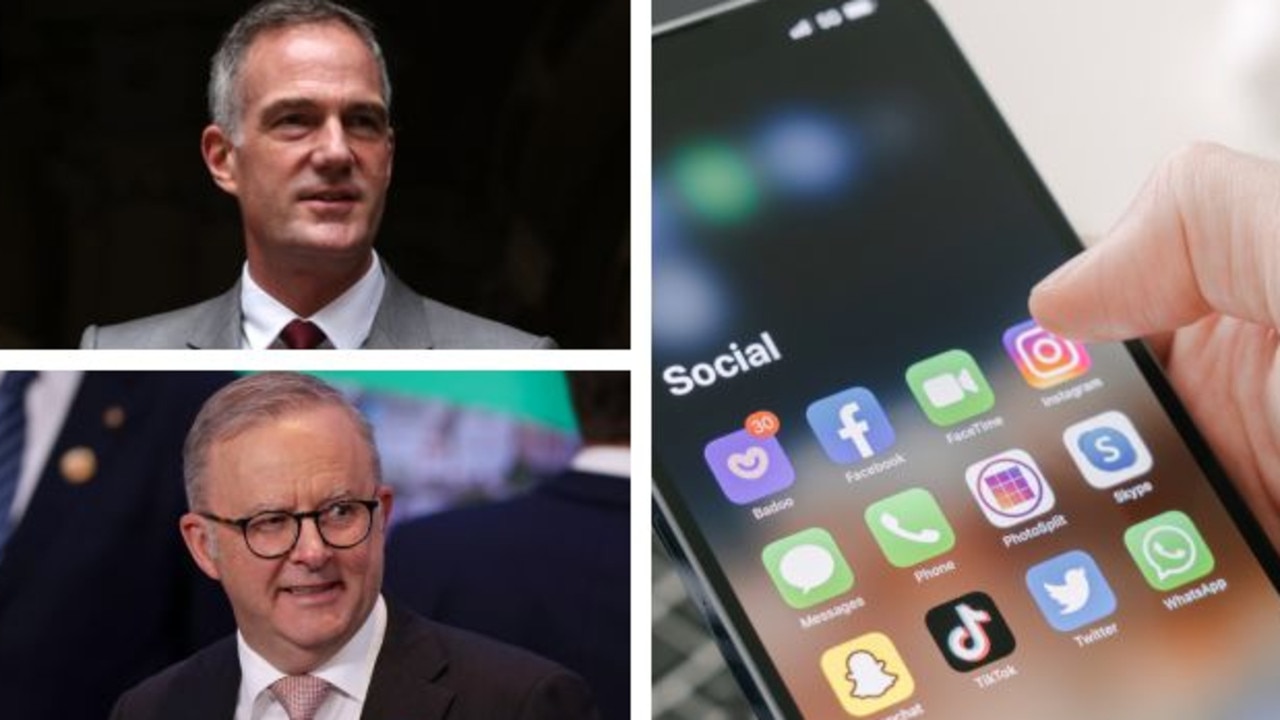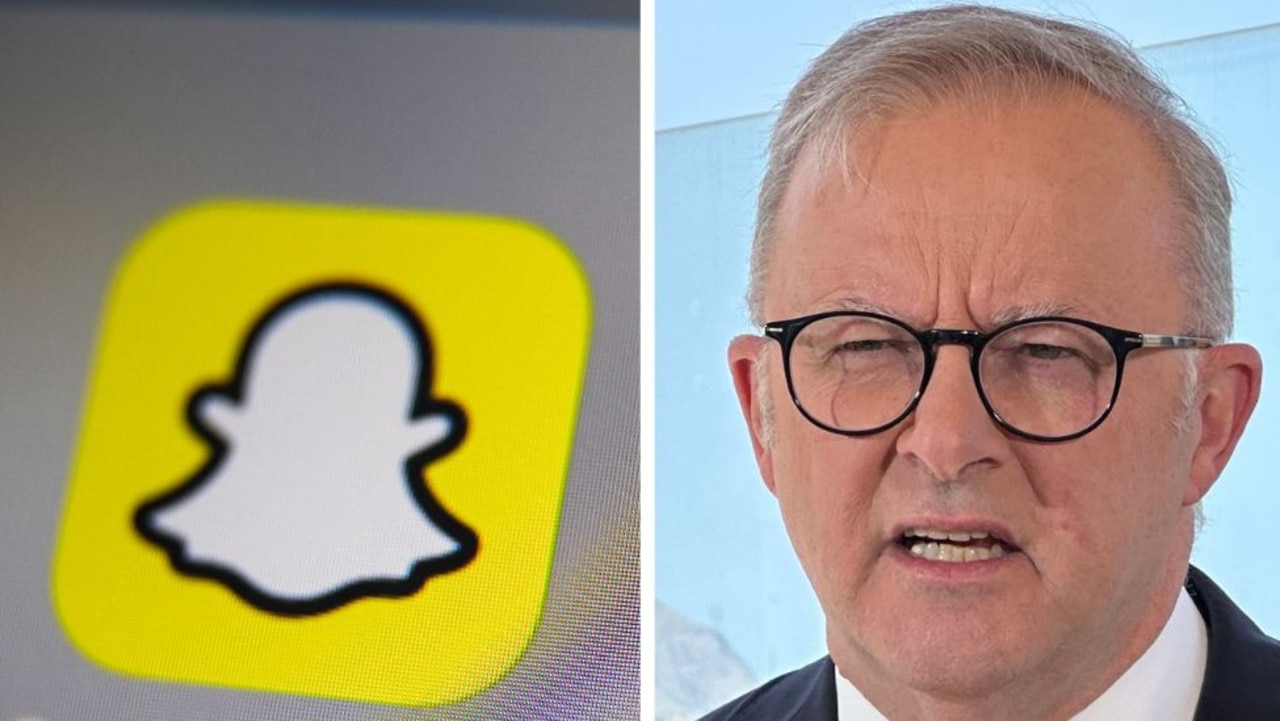Social media laws could give platforms power to decide ‘what is true’
There is one big concern about new laws aiming to crack down on doxxing, misinformation and hate speech on social media platforms.

Social
Don't miss out on the headlines from Social. Followed categories will be added to My News.
Legislation proposed by the Albanese government could give social media companies the power to decide “what is true and what is false”, Liberal senator James Paterson has warned.
The government’s proposed misinformation laws are part of a broader pack of bills targeting social media firms set to be introduced to parliament on Thursday, the last sitting day of the week.
The crackdown comes amid widespread concerns of falsehoods, both deliberate and unintentional, flooding social media about contentious political issues.
But Senator Paterson said he was worried it could allow social media platforms to censor “legitimately held political beliefs”.
“What worries me about the media reporting so far about this Bill is that it includes, apparently, an environment that the social media companies will determine what is true and what is false,” Senator Paterson told Sky News.
“That’s a deeply disturbing thing because we know that, in recent times, (they have) got those things wrong on many occasions.
“Australians’ legitimately held political beliefs should not be censored by either the government or by foreign social media platforms.”

Communications Minister Michelle Rowland will introduce the legislation to expand the media watchdog’s powers to crack down on social platforms, including the ability to slap companies with fines as high as 5 per cent of their global revenue for not combating misinformation.
Ms Rowland told the ABC the laws would deem misinformation or disinformation as something “seriously harmful and verifiably false”.
“It is a very high threshold for what constitutes serious harm,” she said.
Misinformation swept platforms following the deadly Bondi stabbings in April, with prominent alternative social media influencers falsely accusing a Jewish student of carrying out the attack.
Days later, after an Assyrian Orthodox priest was stabbed mid-liturgy, demonstrators clashed with police outside the clergyman’s church, with Russian state media fuelling the ire online.
Ms Rowland said the laws would also try to address disinformation “spread by rogue states or foreign actors” that “has the potential to undermine our democracy”.
Attorney-General Mark Dreyfus will also introduce bills on doxxing and hate speech.
Doxxing is maliciously sharing personal information about someone online.
In February, the details of hundreds of Jewish Australians were made public after a private WhatsApp group was compromised, prompting Prime Minister Anthony Albanese to promise legislative action.
If the doxxing legislation is passed, people convicted of the practice could get a maximum six years behind bars.
But if someone has been targeted because of their race, religious beliefs or sexual orientation, the perpatrator could get seven years in prison.
“Australians have got the right to have their privacy respected and when they’re asked to hand over their personal data they have a right to expect it will be respected,” Mr Dreyfus said.
More to come
Originally published as Social media laws could give platforms power to decide ‘what is true’


